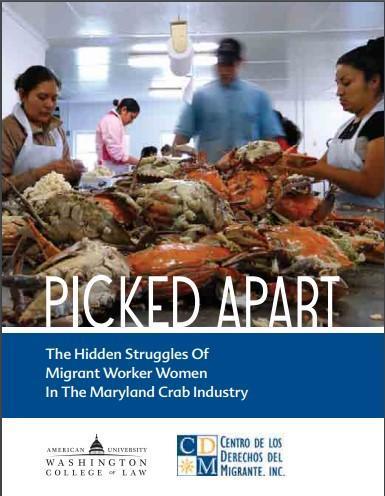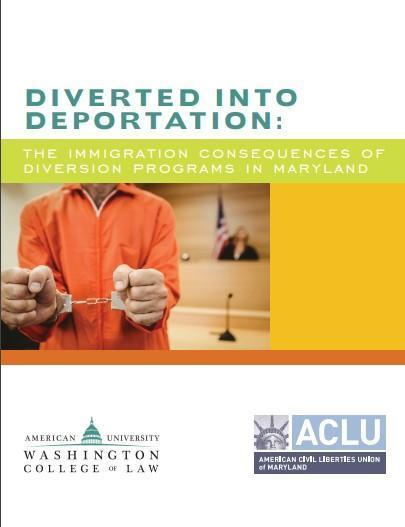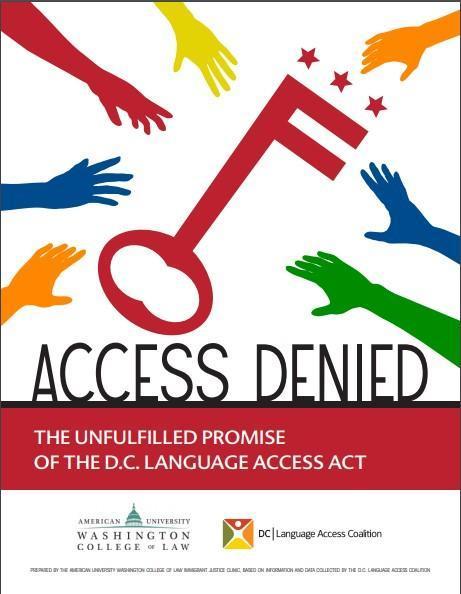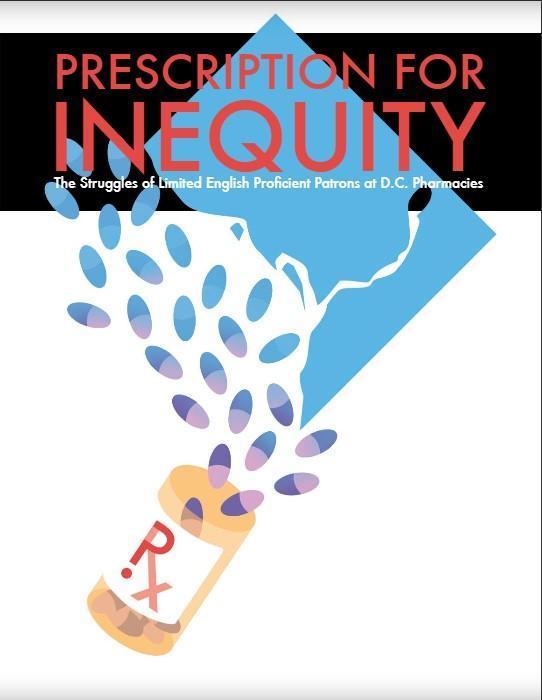IJC Impact Reports
Because immigration issues do not exist in a vacuum, IJC students balance their client representation work with projects that address the big-picture policies and on-the-ground realities affecting immigrants in the United States. Over the years, groups of IJC students have co-authored reports with a number of institutional clients. The reports highlight systemic problems that affect immigrants across a variety of circumstances, from exploitation of temporary guest workers to difficulty accessing language-appropriate services in government offices and pharmacies. By connecting their clients’ individual struggles to policy problems, IJC students learn the many ways in which attorneys can push for change and seek justice for vulnerable groups.

Picked Apart: The hidden struggles of migrant worker women in the maryland crab industry
Every year, hundreds of Mexican women travel thousands of miles from their impoverished, rural home communities to work on the Eastern Shore of Maryland in the state’s historic crab industry. Maryland crab companies have increasingly come to rely on these women, who enter the U.S. on temporary guestworker visas known as H-2B visas. This report describes these women’s experiences as H-2B migrant workers, and is the result of over 40 formal interviews conducted in both the U.S. and Mexico since 2008. By obtaining first-hand accounts from the workers, the report documents the forces and conditions that give rise to this specific population’s decision to migrate; the processes and challenges involved in the recruitment process, and in obtaining documentation to travel to the U.S.; and the experience of living in Maryland and working in the crab industry. The research underlying this report reveals numerous challenges that migrant worker women face throughout the migration experience. Many of these challenges are linked to fundamental flaws with the H-2B program.

Taken for a Ride: Migrant Workers in the U.S. Fair and Carnival Industry
Based on interviews with H-2B workers in Maryland, Virginia, and Mexico, this report sheds light on the abuses that fair and carnival workers face. Such abuses include deceptive recruitment practices and high pre-employment fees and costs; wage theft; lack of access to legal and medical assistance; substandard housing; and unsafe work conditions. The fair and carnival industry epitomizes what is currently most problematic with the H-2B temporary worker program, as employers are often able to mistreat their workers and claim exemption from basic worker protection laws with very little scrutiny. This report provides recommendations that would rectify H-2B worker mistreatment through means such as comprehensive immigration reform, agency rulemaking, and enforcement of existing laws. Fixing the H-2B program would not only help foreign temporary workers: all workers in the U.S. benefit when the rights of a specific group of workers are enhanced and enforced.

Diverted Into Deportation: The Immigration Consequences of Diversion programs in maryland
Diversion programs are programs intended to help people charged with certain offenses avoid jail time, convictions, and associated costs. These programs are commonly used for individuals who have been charged with an offense that is related to an underlying substance abuse problem. For these individuals, diversion programs offer opportunities for rehabilitation and enrollment in community-based treatment programs as an alternative to incarceration. Successful completion of a diversion program usually results in dismissal of the criminal charges that brought the individual before the justice system or in expungement of any conviction that resulted from those charges.
In Maryland, most diversion programs require individuals to enter a guilty plea or accept a Probation Before Judgment (PBJ)—a disposition that the state of Maryland does not consider to be a criminal conviction—in order to participate in the program. This is problematic in the immigration context because of the relationship between these dispositions and grounds for removability under immigration law: a guilty plea or a PBJ is enough to count as a “conviction” for immigration purposes, even if the state court never enters a finding of guilt.

Access Denied: The Unfulfilled Promise of the DC Language Access Act
The Washington, D.C. metropolitan area has emerged as an important gateway city for immigrants arriving in the U.S. These immigrants hail from all corners of the world, and have significantly enhanced the cultural and language diversity of the nation’s capital. The District of Columbia is now home to tens of thousands of limited English proficient and non-English proficient (LEP/NEP) persons; countless other LEP/NEP individuals are employed in D.C., do business here, or otherwise interact with the city government. In 2004, the D.C. Council passed the D.C. Access to Justice Act, requiring almost all D.C. government agencies to provide oral interpretation and document translation in the languages most commonly spoken by LEP/NEP individuals in the District. Although a handful of agencies have embraced the Act, many more struggle with offering even the most basic interpretation services and with translating vital documents. Many of this report’s findings differ from the government’s own internal assessment of its compliance with the Act.

Prescription for Inequity: The Struggles of Limited English Proficient Patrons at D.C. Pharmacies
Every D.C. resident should understand his or her prescription medication labels, and be able to obtain the correct medication. The consequences of misunderstanding these labels or consuming the wrong drugs can be dire for patients and costly for the District. Providing oral interpretation services at pharmacy counters, prescription label information in a patient’s language, and translation of other key information can improve health outcomes and reduce budget spending on health care by avoiding the costs of having to treat illnesses that result from improperly-taken medication. Thje report’s authors conducted a survey of D.C. pharmacies and learned that most pharmacies did not notify customers of their right to obtain prescription information in their own languages, and over half did not have protocols or mechanism to provide such services. As a result of the gap in language access, many community members have difficulty accessing the vital information that accompanies their prescription medication, and there is little in existing laws or regulations to help them.

